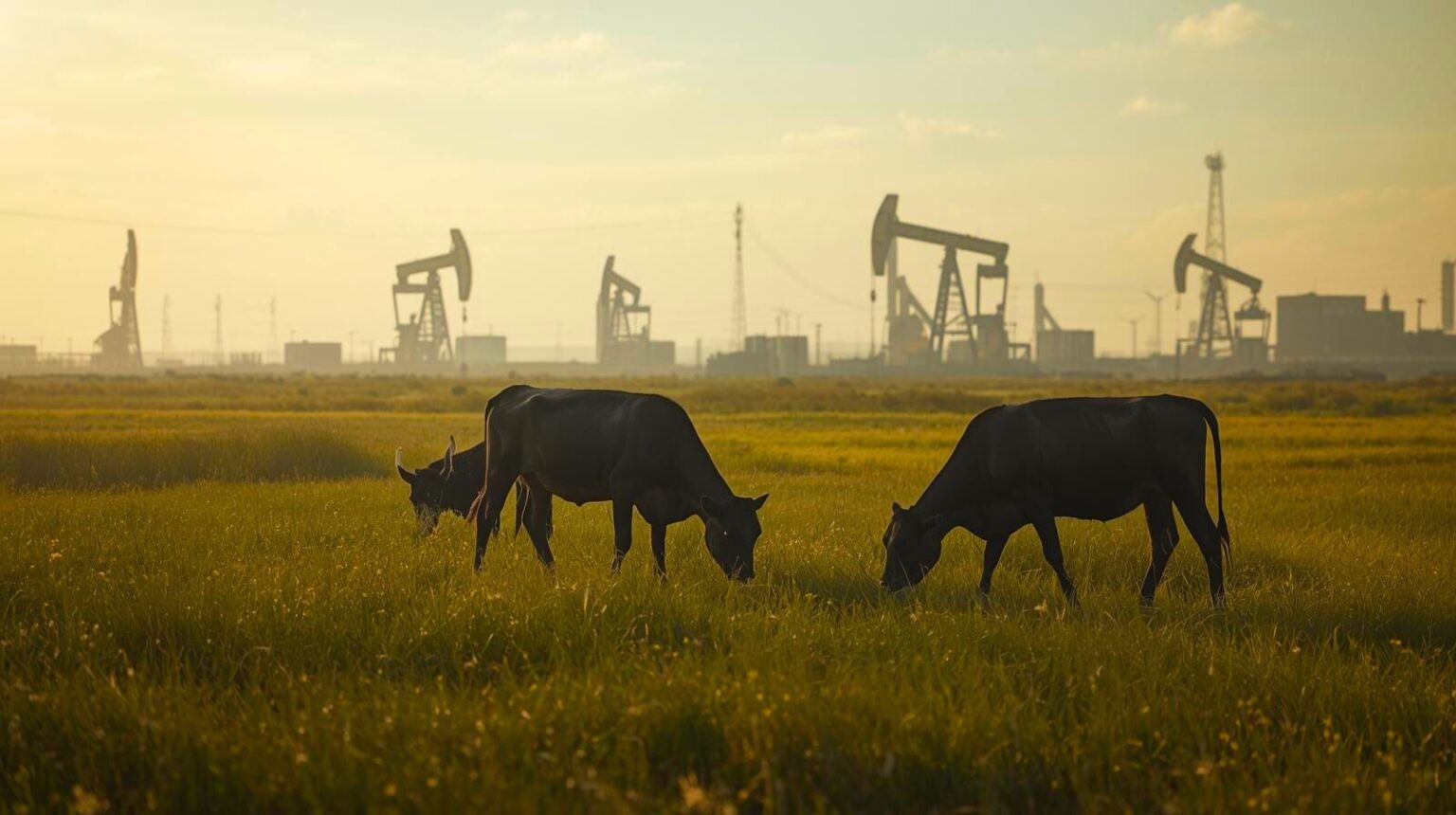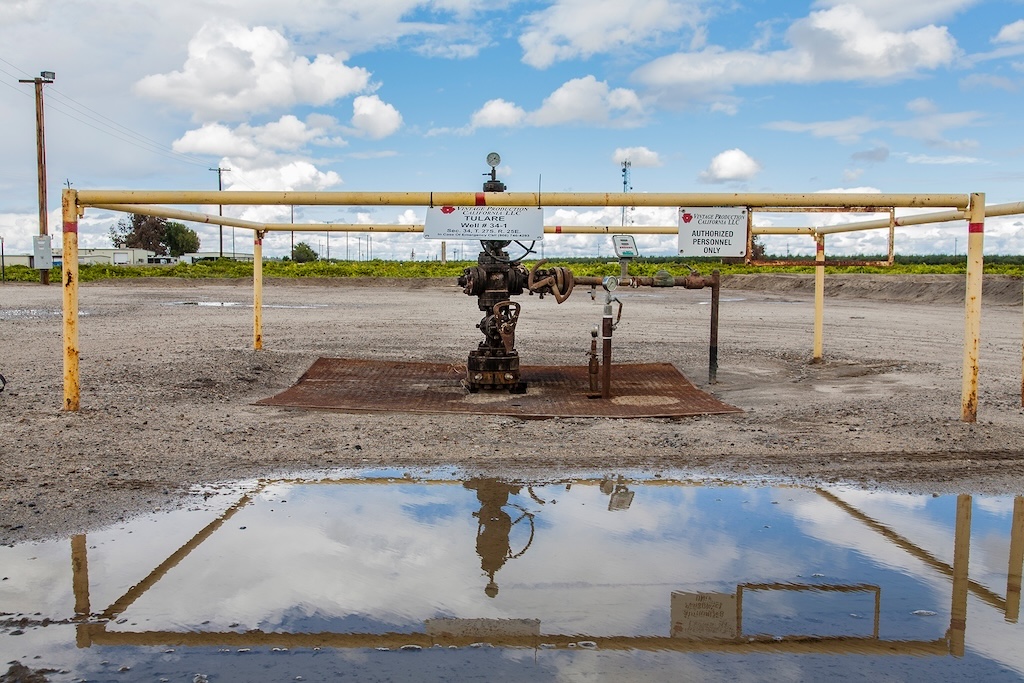Major meat and dairy producers emit more greenhouse gases as a group than the nation of Saudi Arabia, the world’s number two oil producer — emissions that rival those of the world’s biggest fossil fuel companies, according to a new analysis published Monday.
The assessment, which was produced by the nonprofit research firm Profundo and four environmental advocacy groups, estimates that the 45 largest meat and dairy corporations in the world were responsible for more than 1 billion tons of carbon dioxide-equivalent emissions in 2023. Only eight other countries worldwide emit more — though the figure for Saudi Arabia includes only domestic emissions and not those from Aramco, its state-run oil and gas company.
About half the combined total came from just five companies — JBS, Marfrig, Tyson Foods, Minerva Foods, and Cargill. Together, those five firms emit 480 million tons of carbon dioxide-equivalent gasses annually, more than Chevron (454 million tons), Shell (429 million tons), and BP (366 million tons), the analysis shows.
Subscribe to our newsletter
Stay up to date with DeSmog news and alerts
The report was released in advance of next month’s COP30 climate summit in Belém, Brazil. At last year’s COP29 in Baku, Azerbaijan, representatives from big agribusiness corporations, meat and dairy trade groups, and lobbying firms representing the sector turned out by the hundreds.
“As governments head to COP30 in the heart of the Amazon — an ecosystem devastated by global meat giants — scientists are clear that a failure to bring down agricultural emissions will torpedo us well past the Paris 1.5°C red line,” said Shefali Sharma, global agriculture policy expert for Greenpeace Germany, in a statement provided to DeSmog. Greenpeace Nordic was one of the four advocacy groups that contributed to the report, alongside Foodrise, Friends of the Earth U.S., and the Institute for Agriculture and Trade Policy.
The meat and dairy sector’s biggest climate impacts are due to methane, a greenhouse gas that warms the planet 80 times faster than carbon dioxide when measured on a 20-year timescale. Methane, which cattle and other ruminant livestock burp up as part of their digestive process, accounted for more than half of meat and dairy’s climate pollution, according to the report. The 45 companies emit more methane than the entire European Union plus the United Kingdom, the assessment found.
But carbon dioxide is a significant factor too, mostly thanks to the the razing of forests for grazing and feed crops. Manure management practices also contribute to a sizable footprint from nitrous oxide, a greenhouse gas that’s about 270 times more potent than CO2.
JBS was by far the biggest polluter among the 45 companies, responsible for 24 percent of the group’s total estimated emissions. The Brazilian meatpacking giant, which slaughtered an estimated 20.8 million cattle in 2023, had greater methane emissions than ExxonMobil and Shell combined that year, according to the report.
In 2021, JBS announced a commitment to reach net-zero by 2040, running a full-page ad in The New York Timesthat insisted “anything less is not an option.” But the company has since backtracked on the pledge, while gearing up for what it projects will be a 70 percent increase in global animal protein demand by 2050.
“It was never a promise that JBS was going to make this happen,” JBS global chief sustainability officer Jason Weller told Reuters earlier this year.
Though carbon dioxide emissions can linger in the atmosphere for thousands of years, methane is a comparatively short-lived greenhouse gas. It warms the planet for only about a decade before breaking down — which means ambitious methane cuts have the potential to rapidly cool the planet.
Some experts liken methane cuts to an “emergency brake,” what the United Kingdom-based environmental nonprofit Climate Crisis Advisory Group calls “the fastest and most cost-effective lever available to slow warming within our lifetimes.”
Cows Burp Up Tons of Methane
Agriculture is the number one source of global methane emissions, due in large part to belching by ruminant livestock like cattle, who can burp up well over 150 pounds of methane per year. That adds up to a major per-capita impact in countries like the U.S. that consume much more beef compared to the global average. A study published Monday in Nature Communications found that the carbon footprint of meat consumption in America’s cities alone is roughly equivalent to that of domestic oil and gas combustion.
University of Michigan professor Benjamin Goldstein, a lead author on that study, said dietary changes could be as significant as putting solar panels on your house — a similar impact at just a fraction of the cost.
“If you just cut out half of your beef consumption and maybe switch to chicken, you can get similar amounts of greenhouse gas savings depending on where you live,” Goldstein said in a statement. “If we can get people to use this type of study to think about how diets in cities impact their environmental impacts, this could have huge effects across the United States.”
High- and upper-income countries currently consume 77 percent of the global meat supply, compared to just 2 percent in lower-income nations. But climate-minded dietary changes can still be a politically fraught topic in wealthier nations like the U.S., where meat tends to be a culturally important staple — and industry-funded narratives often pour fuel on the culture war fire.
In a section of their report devoted to solutions, the four nonprofits outlined strategies that go beyond appeals to individual-level choices, including shifting public money away from animal agriculture and policies that make meat and dairy firms bear the financial cost of their own pollution. But above all the report emphasized the importance of transparent emissions accounting — the kind of information that helps the public connect the dots.
More than 40 percent of Americans incorrectly think eating a more plant-oriented diet wouldn’t help climate change at all, or aren’t sure that it would, according to research from the Yale Program on Climate Change Communication.
JBS, Marfrig, Tyson, Minerva, and Cargill had not provided comments by press time.
CORRECTION (10/29/25): The original version of this article stated that top meat companies emit more greenhouse gases than big oil companies. That has been corrected.
Subscribe to our newsletter
Stay up to date with DeSmog news and alerts






